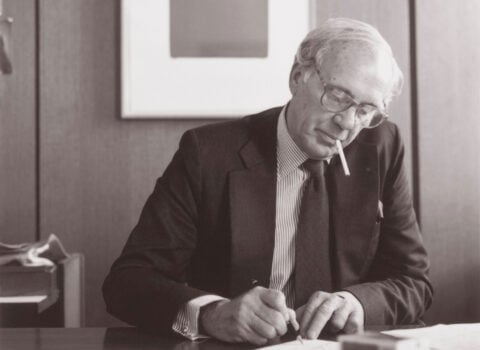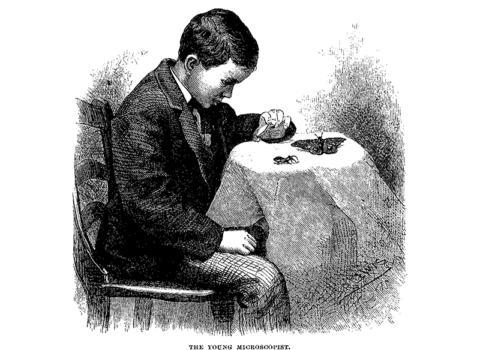The Antiglobalists
"Both Sanders and Trump affirm their determination to rebuild an America weakened by unhealthy relationships with the outside world."
During a recent visit to the Dominican Republic, I gave a lot of thought to “globalization”—a concept much discussed and much disputed in the current U.S. presidential campaign. Santo Domingo, the Dominican capital, was the first European-style city in the New World—the realization of the global ambitions cherished by Christopher Columbus and the Spanish monarchy—and my stay there prompted me to reflect on the frankly antiglobalist discourse that’s dominating the debate among the leading presidential candidates.
Donald Trump denounces almost everything that comes from outside the U.S. (excluding, of course, his wife, Melania). From free-trade agreements negotiated by “losers” at America’s expense to the insidious Mexican immigrants who are poaching our jobs to the numerous overseas military stupidities committed by both Republican and Democratic governments, the real-estate billionaire paints a horrendous portrait of the lands beyond our borders.
“We’re living in a very vicious world,” he declared to Anderson Cooper of CNN last Tuesday. “You look at what the world is doing to us at every level, whether it’s militarily or in trade . . . The world is taking advantage of us, and it’s driving us into literally being a Third World nation.” Therefore Trump would like to withdraw from this mean-spirited world, which persecutes innocent America, and erect barriers. “We’re a poor country now,” he told the editorial board of the Washington Post.
Bernie Sanders seems to be less scared, globally speaking. He often refers to his Polish roots, and his older brother immigrated to England. But Sanders also rails against free trade and the invasion of Iraq, even though he’s more sympathetic than Trump toward people perceived as “the other.” Both men affirm their determination to rebuild an America weakened by unhealthy relationships with the outside world.
Lord knows I’m disgusted by the ravages of American-style globalization: the Vietnam War; the North American Free Trade Agreement (NAFTA); the invasion of Iraq; the overthrow of Gaddafi; the virtually permanent war in Afghanistan; etc. It’s hard to point to a single real success in Washington’s foreign policy since the end of World War II (it was Gorbachev, not Reagan, who “won” the Cold War).
However, the beauty of Santo Domingo’s Colonial Zone makes me hesitate in my criticism. The cathedral, which mingles elements of Gothic and Plateresque styles, is remarkable. So are the verdant little streets and alleys, the shady, tranquil squares, and the pleasing architecture of the colonial buildings, still vibrantly inhabited and alive after many centuries. You could spend hours just strolling around.
But wait. Wasn’t all this the creation of “globalist” Spaniards, whose cruelty is legendary? Is this not, in fact, the birthplace of the modern West’s murderous globalization? In our day, it’s fashionable to call the arrival of Christopher Columbus and, later, of his brother Bartholomew on the island of Hispaniola the prelude to genocide. When I went walking on Calle Las Damas, I felt the presence of those first, Italian-born conquistadores, and of the architects and draftsmen who accompanied them. According to my guidebook, to walk along that street is “to retrace the steps of the first Spanish Explorers, who used Santo Domingo as a base for the conquest of Latin America.” But the Spanish also used it for the near extinction of the indigenous peoples, notably the Taíno tribe, who largely disappeared from Hispaniola after having endured slavery, rape, and, in 1518, a smallpox epidemic. There are some real innocents for you, natives slaughtered by the “civilizing mission” of a world in search of gold and souls to enrich the aristocracy of Madrid and the sovereign Pontiff of Rome.
The paradox of this lovely section of Santo Domingo, built on indigenous corpses, puts me in mind of the big Mexican cities along the Rio Grande, towns swollen by NAFTA, overflowing with factories and badly paid, badly housed workers, they too victims of Western adventurers. There aren’t so many dead bodies, some beautiful buildings still adorn the streets, but all the same, considerable damage is being done.
According to John Gray, the great British critic of free trade, “today’s project of a single universal market is America’s universal mission co-opted by its neo-conservative ascendancy.” Writing in his seminal book, False Dawn: The Delusions of Global Capitalism, Gray argues, “Earlier this century, the American messianic tradition had a noble and generous expression in the Rooseveltian liberalism that helped defeat Nazism in Europe. . . . The free market has displaced this American liberal tradition.” These days, the American businessman leaves for foreign lands not in order to convert pagans but to make them work cheaply. This is an attack on the world. Trump has sufficient crude intelligence to understand that, but isolated by the money he inherited and enclosed in his hideous tower, he’s not really a man of the world. If ordinary people see him as a messiah, God help them.




